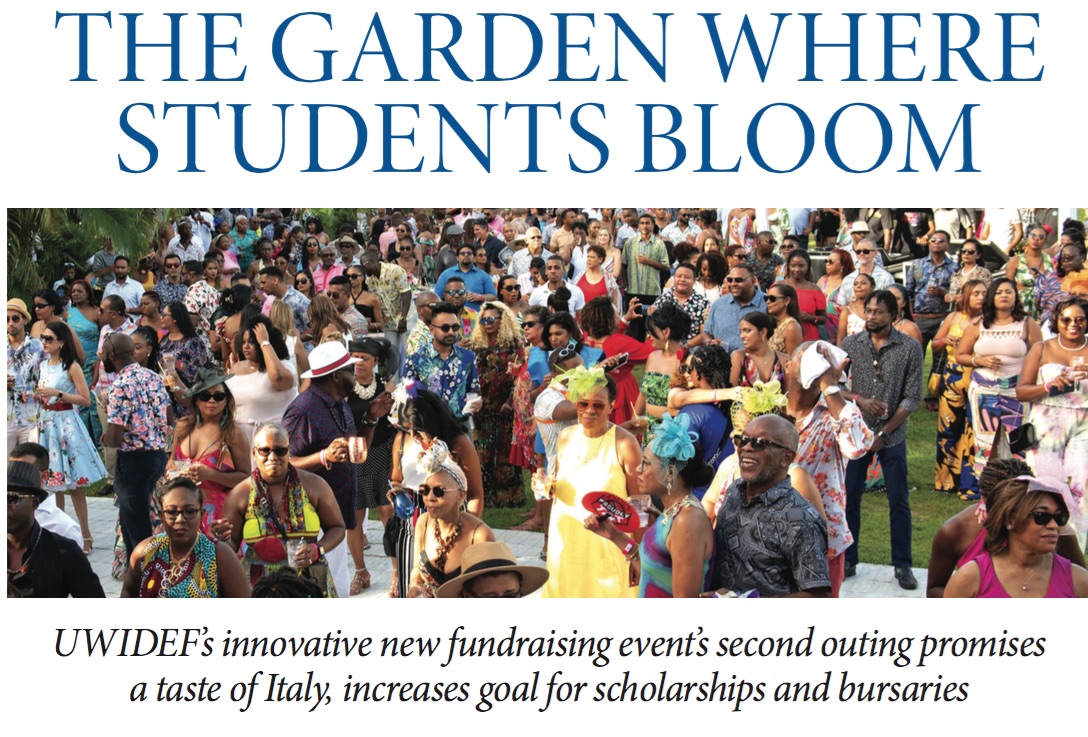
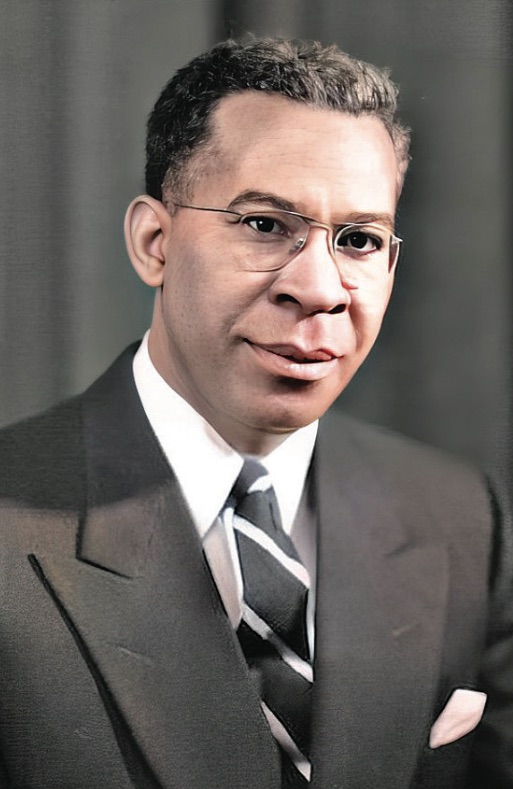

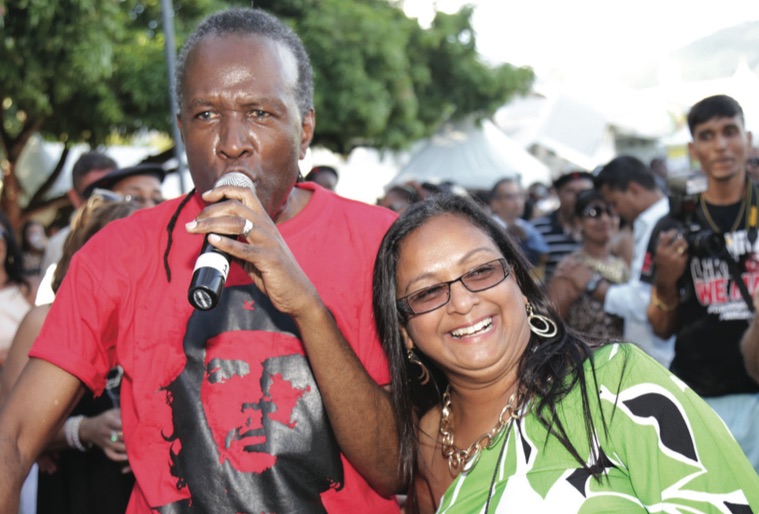
King David holds court: Legend of calypso and soca David Rudder performs with the people at UWI Fete. Over the years, some of the greatest performers in the region, across all genres, have graced the campus.
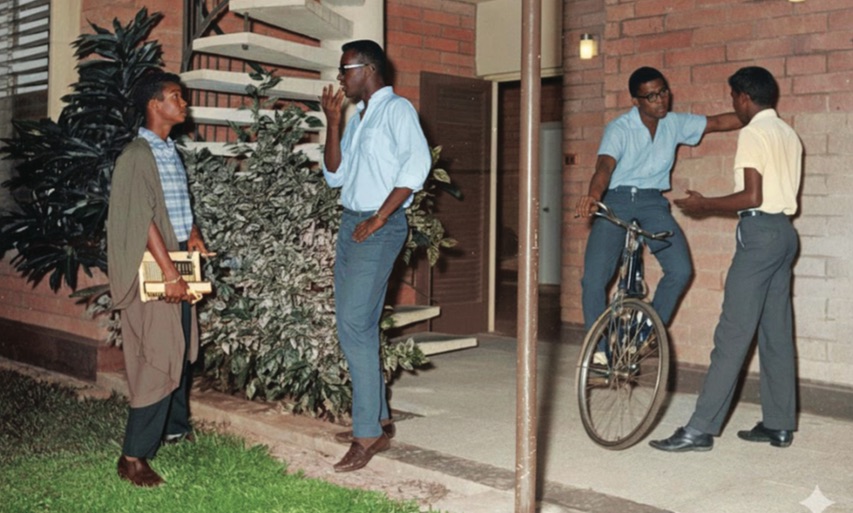
The dapper young gents of Canada Hall: stylish from the beginning. Opened in 1963 and named after its donor government, Canada Hall is one of several halls of residence for students (local and international), giving them the ability to appreciate campus life at its fullest.
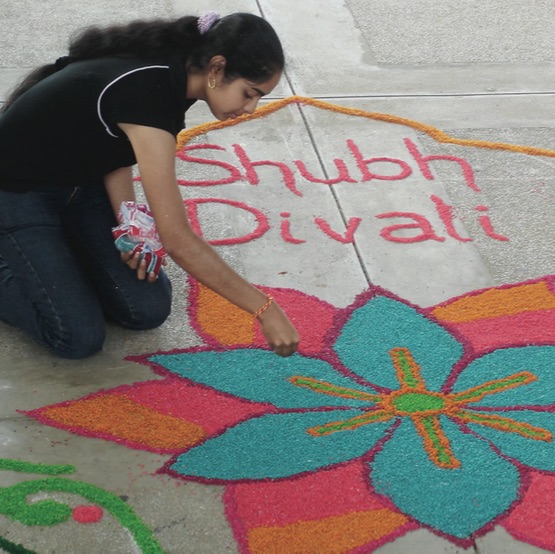
Faith and festivals: A student makes a vibrant rangoli design on the JFK Quadrangle for Divali. Students and staff enhance the beauty and community of campus through the practice of their faiths, one of the many benefits of T&T’s cosmopolitan society.
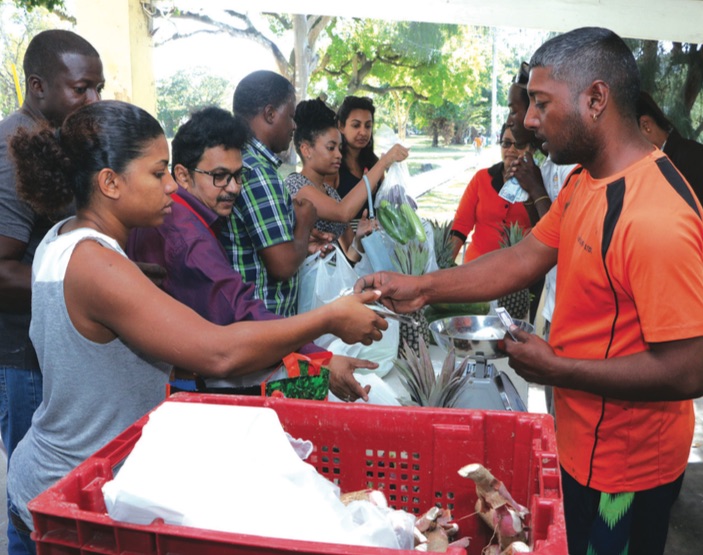
Fresh fruits and vegetables: The University Field Station, a 55-acre block of farm land is well-known as a resource for teaching, research, and popular products like fresh milk. But members of the campus community also get to enjoy its produce at great prices.